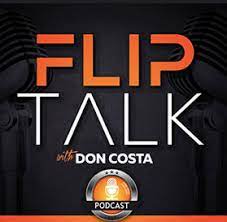Ways to Find a Real Estate Mentor
If you want to quickly grow within real estate, finding a good mentor is the best thing you can do for yourself. Whether they be in real estate, politics, or business, almost any successful person had a mentor who helped them get to where they are now. Books, podcasts, and videos will only get you so far when it comes to learning about real estate investing. After that, it’s all about real-world experience and gaining valuable connections.
To learn as much as possible in a relatively short amount of time, you should look into ways to find a real estate mentor. Someone who is trustworthy and knowledgeable will help you quickly grow within the industry and get you closer to your goals. By sharing their mistakes, they can help you avoid making your own. By aligning yourself with someone who has already reached your set goals, you are more likely to achieve your own. There is more to finding a real estate mentor than just picking someone you admire. This article will go over everything you need to know about how to find a real estate mentor.

What is a Real Estate Mentor?
A real estate mentor is someone who will help you quickly grow within your real estate career by offering advice and coaching based on their own experience. Typically, you will choose someone who already has many years of experience and is now knowledgeable enough to share their own experiences with you. They should be willing to help guide you through your career journey based on things they learned in theirs. This mentorship should be a beneficial relationship for both parties. You should also bring something valuable for your mentor, like new skills, networking connections, or potential deals.
ADVERTISEMENT
Best Ways to Find a Real Estate Mentor
The perfect real estate mentor should be someone who is successful in the same things that you aspire to do in your own career. Before looking for a mentor, you should complete the following steps:
- Identify what you want to accomplish in your real estate career
- Establish whether or not your potential mentor has the credentials and experience to help you reach your own goals
- Look for someone in the same type of real estate investment you see yourself in (flipping homes, wholesale, property management, etc.)
- Make sure the goals of your mentor align with yours
- Ensure there is a mutual level of respect
Once you better understand what you want in a real estate mentor, you can begin looking for someone who could be the right fit. This list includes some of the best ways to find a real estate mentor.
- Join local real estate groups
- Attend networking events
- Try out all aspects of real estate to meet the most people
- Share your work online and on social media
- Create a robust LinkedIn profile and connect with other real estate professionals
- Engage with their content and attend their sessions
Types of Real Estate Mentorships

Before you jump right into finding your real estate mentor, you should decide which type of mentorship works best for you. Consider things like your learning style, availability, and what you feel you need to learn from your mentor to succeed. Once you understand yourself and your needs better, you’ll be able to choose the best mentor for you. Below are a few different types of real estate mentorships you may want to consider when looking for your own.
Personalized Coaching
With a personalized coaching style of mentorship, you will get one-on-one coaching from your mentor. This is an excellent option for anyone just starting off in real estate who could benefit from a lot of personalized advice that pertains to their specific needs and goals. This mentor will be someone experienced in the type of real estate investing you plan to get into who can help walk you through any potential projects or deals.
Mastermind Groups
Unlike the personal coaching style of mentorship, being in a mastermind group is like having many mentors around you who you can reach out to. Check your area to see if there are any real estate investing groups that you can join. This is an easy way to connect with peers in real estate and start making connections with people who can help you. If there are no groups in your area, look into some virtual groups instead. You may even end up meeting someone who you want as your mentor in one of these groups.
Apprenticeships
Some of the best knowledge you can gain is through experience. The quickest and easiest way to get lots of experience is through an apprenticeship. With this type of mentorship, you will assist your mentor as they show you the ropes through their own business. This is a valuable way to get hands-on experience, plus you can see how someone who is successful in the same goals you set for yourself conducts their own business. Pay close attention to what your mentor does throughout your apprenticeship so you can follow their example.
ADVERTISEMENT
How to Pick the Right Mentor for You
It’s important to note that just because someone has good knowledge of the industry doesn’t mean they’re a good fit for you. Don’t feel obligated to accept someone’s offer to be a mentor just because they are open to it. This is a symbiotic relationship, and both people need to get something out of it. Do your research and make sure whoever you pick as your mentor has similar goals as your own. The best real estate mentor will be able to help you fast-track your goals and grow quickly within your area of real estate. Start by looking for someone who is already accomplishing what you aspire to in your future.
Once you find people who are successful in ways that you hope to be, make sure they would make a good mentor. Just because someone is successful doesn’t mean they are good at being a real estate mentor. If someone doesn’t feel like the right fit, don’t be afraid to talk to others. Find someone who has a good communication style that matches your own. Committing to a mentorship is a big decision, and there is no need to rush it.
Does Real Estate Mentorship Cost Money?

Everyone is different when it comes to requiring payment for mentorship. This is something you should discuss with your potential mentor before committing to anything. That said, having a good mentor can put you ahead of your competition and speed up your success within real estate. Despite costing money, getting a real estate mentor is something you should highly consider for yourself if you want to achieve your goals.
To learn more about how to get started in your real estate investment career, reach out to us to join our three day real estate investment course!


Joe Arias and his partners have flipped hundreds of properties in the Southern California Region. He has developed cutting-edge systems to simplify and scale the entire remodel process that can easily be applied to flipping, rentals, wholesaling, and other passive income strategies. More recently, Joe founded a real estate investing education company called RealSuccess Investments, allowing him to share his tools and systems with hundreds of up-and-coming investors.
RealSuccess is focused on education on flipping, rentals, passive income, and wholesaling.
Joe is also a best-selling author. He has written 4 books: Finding your RealSuccess, First Steps to Flipping, R stands for Rentals and Retirement, and Wholesaling Real Estate.
“I came from Argentina when I was 20, I am 40 years old now. I didn’t know anyone, I am CERO generation, usually people say, I am first or second generation but I was the one that crossed the border, no language, no friends, no family, no money, nothing, nada… If I can do it, anyone can.”
From a young latino immigrant to a celebrated real estate investor, Joe is a true testament to hard work and discipline. As an investor, he has made it his mission to help others achieve financial freedom while enjoying living a life of passion, fulfillment, and empowerment.
RealSuccess Website
Personal Instagram:
https://www.instagram.com/joeariasinvestor/
Real Estate Investment- Instagram:
Instagram: https://www.instagram.com/realsuccesseducation/
Video For Finding Money from All Day Training (10 Hour Seminar)
https://vimeo.com/manage/videos/528446162
1 Hour Webinar
https://vimeo.com/manage/videos/530996751
Amazon Book#1:

Amazon Book#2

Learn live and in real-time with Realty411. Be sure to register for our next virtual and in-person events. For all the details, please visit Realty411Expo.com or our Eventbrite landing page, CLICK HERE.











































